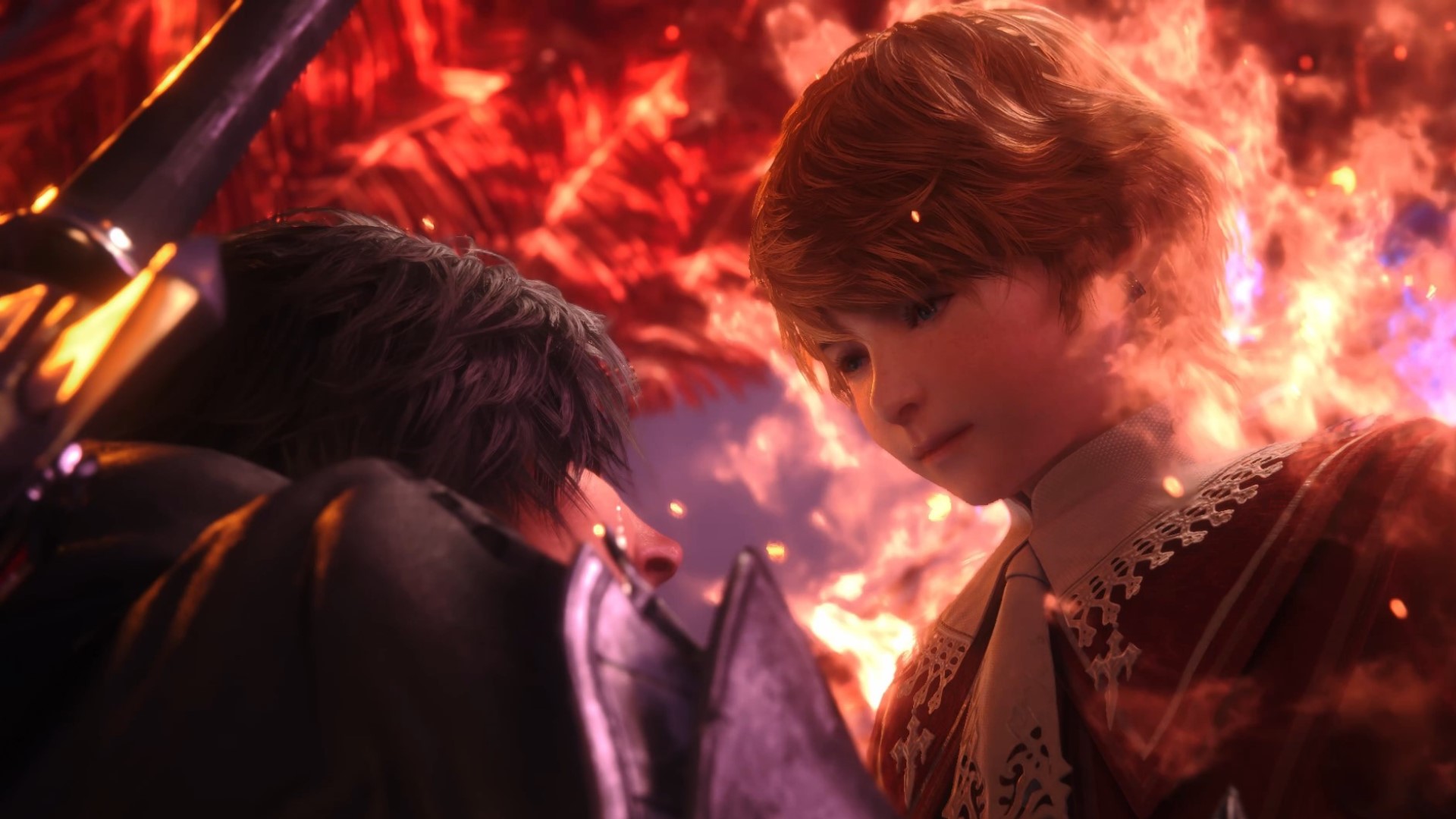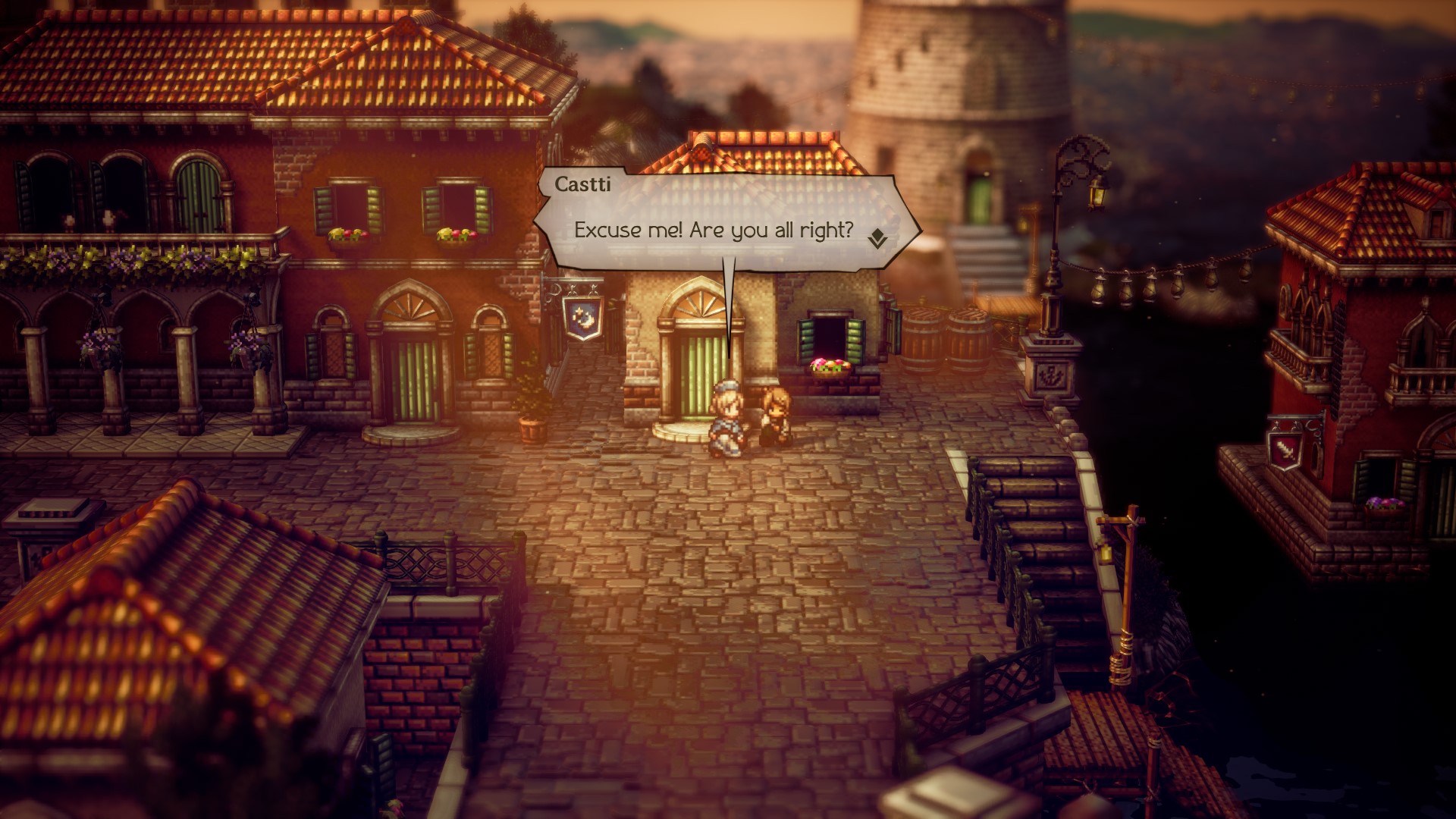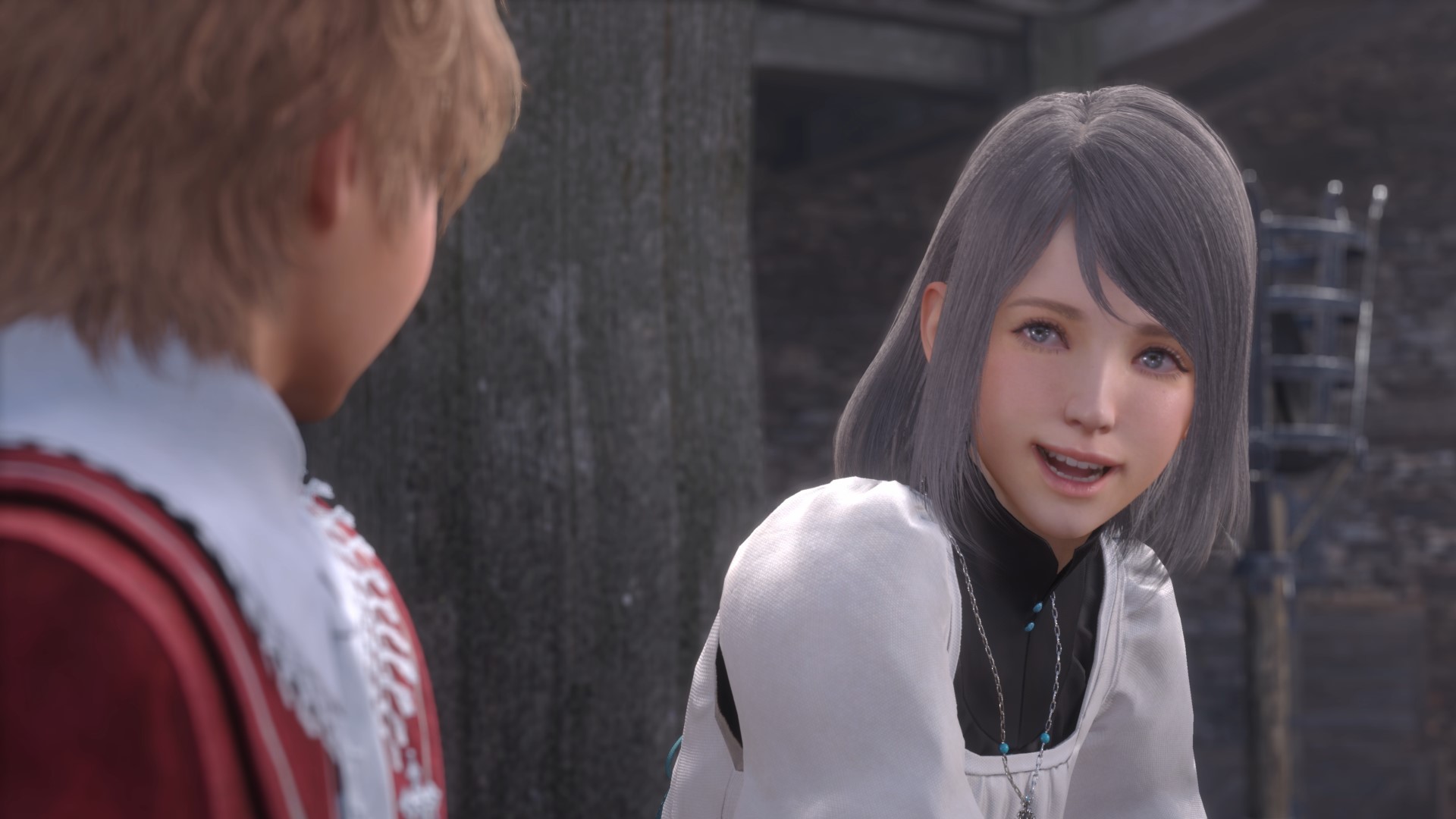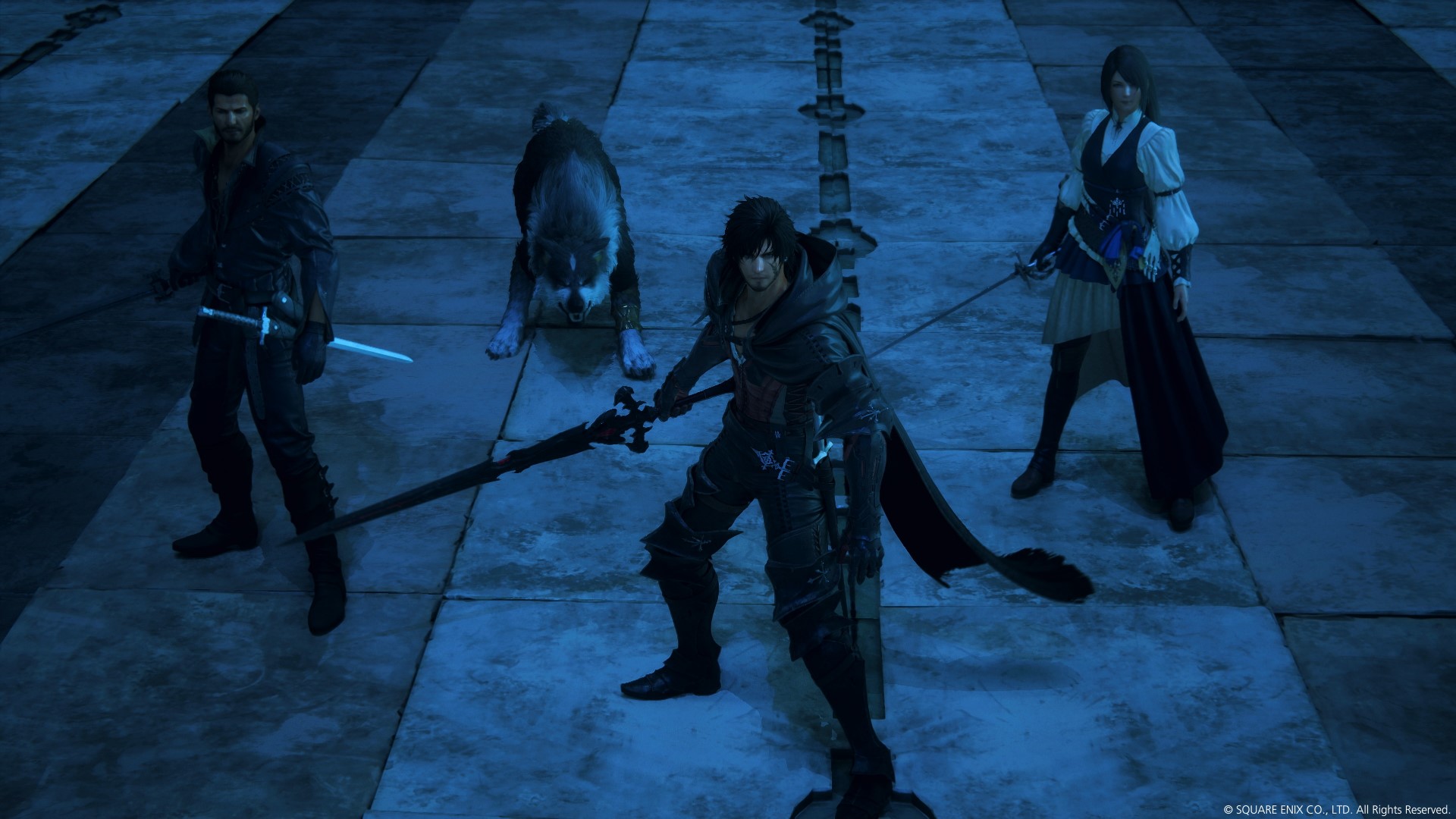For Final Fantasy 16 to succeed, it'll need to do what other RPGs often don't
Off the beaten path

Prince Hikari is a fish out of water. Exiled from his homeland, he finds himself on a quest for allies in the hope that he might someday return home and overthrow his warmongering brother. To this end, he travels across a harsh desert, the sun beating down as monsters beset him from all sides.
Eventually, he arrives at a frontier town. Next to a ruined mansion overlooking the town stands a lonely man. His flashy outfit and cool hat demark him as another protagonist. With gusto, Hikari approaches the man. In him, the wayward prince may find a kindred soul who might assist him on his quest. They may confide in one another and form a genuine emotional bond as they commiserate over their shared tribulations.
However, such are the limitations of Octopath Traveler 2 that the behatted man, one Partitio, cannot personally acknowledge Hikari. In game terms, any of the seven other octopath travelers could be having this conversation with him. Therefore, this otherwise fascinating man offers up generic, deliberately bland dialogue. Hikari doesn’t even talk back. We, the player, simply accept him into our party through a bland menu prompt, shattering the prospect of a warm and emotionally resonant meeting between these two wayward sons. In this instance, Octopath Traveler 2’s attempt at ensemble storytelling takes a fall from which it never properly recovers.
Battle bonds

Many of the best JRPGs of all time, both modern and classic, rely on ensemble storytelling. Xenoblade Chronicles 3, for instance, uses its cast of diverse characters to act as foils for one another, against which they grow as the story unfolds. The dramatic clash between stoic Noah and passionate Mio eventually leads to one of the most moving and tragic relationships I’ve ever seen in a video game.
Ensemble casts bouncing off one another can bring a sense of organic development to a title’s characters. But, because the team behind Octopath Traveler 2 doesn’t lean into the possibilities, it becomes an oddly brittle game, where both the engaging combat and gorgeous scenery cannot escape the long shadow of its fractured narrative.

For all the fantastical setpieces and luscious scenery of its trailers, Final Fantasy 16 would do well to do exactly what Octopath 2 didn’t. In an interview with IGN, the game’s producer Naoki Yoshida stated that “for most of his journey, Clive will be accompanied by one or more companions.” This suggests that Final Fantasy 16 may use a more fluid approach to party dynamics, shifting the party composition to suit the demands of the story.
However, it concerns me that gameplay: “focuses solely on controlling Clive”, as it may mean we’ll focus on Clive’s perspective at the expense of the supporting cast. Hopefully, Clive’s little brother Joshua, their friend Jill, and the rest of the cast will still have the space to express themselves through the game’s cutscenes and dialogue.
Sign up for breaking news, reviews, opinion, top tech deals, and more.
A true epic

When you’ve got a sprawling story, full of delicate politics and world-spanning affairs, it’s important to have a variety of characters to ground the story’s themes, so that we, the audience, can relate to how those themes affect the folks who actually live in those worlds.
Octopath Traveler 2’s disjointed narrative stands in the way of compelling character development
Just as important is how those characters, with their differing perspectives, bounce off of one another. As varying perspectives and agendas clash, we’re treated to new and memorable moments of character development. Xenoblade Chronicles 3 is entirely predicated on two squads on opposing sides of a forever war, coming together because they find themselves facing a new and unprecedented enemy.
Octopath Traveler 2’s disjointed narrative and uneven tempo stands in the way of the emergence of new perspectives and compelling character moments. It is my hope that Final Fantasy 16 will follow in the footsteps of JRPGs past and not use the title’s lofty geo-political setting as an excuse to overlook deeper, more character-driven elements. Only the nitty-gritty of complex, organic relationships can do Final Fantasy 16’s setting justice.

An editor and freelance journalist, Cat Bussell has been writing about video games for more than four years and, frankly, she’s developed a taste for it. As seen on TechRadar, Technopedia, The Gamer, Wargamer, and SUPERJUMP, Cat’s reviews, features, and guides are lovingly curated for your reading pleasure.
A Cambridge graduate, recovering bartender, and Cloud Strife enjoyer, Cat’s foremost mission is to bring you the best coverage she can, whether that’s through helpful guides, even-handed reviews, or thought-provoking features. She’s interviewed indie darlings, triple-A greats, and legendary voice actors, all to help you get closer to the action. When she’s not writing, Cat can be found sticking her neck into a fresh RPG or running yet another Dungeons & Dragons game.